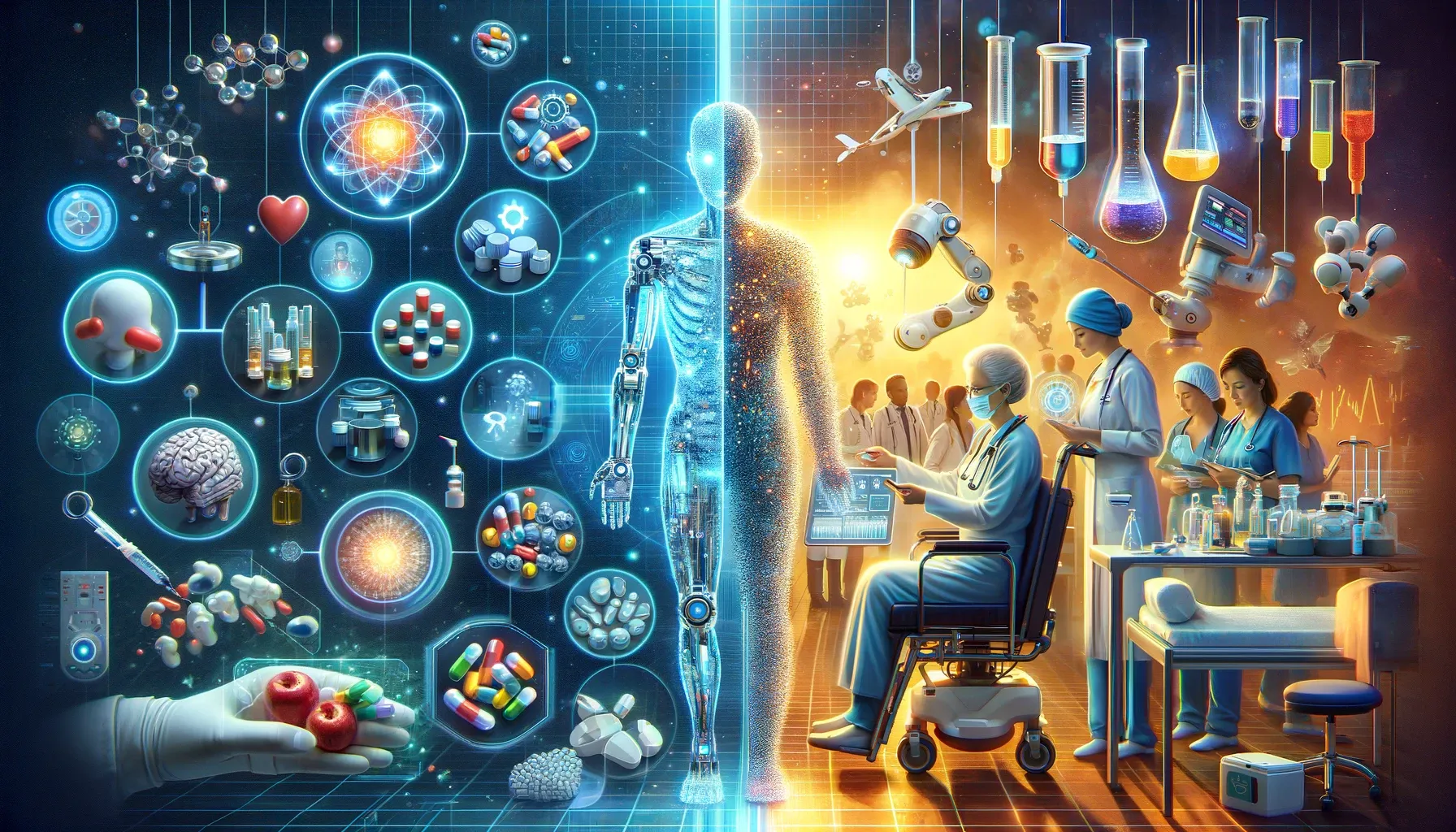The Power of AI + The Humanity of Healthcare
Thursday, Mar 28, 2024

“In the past, jobs were about muscles, now they’re about brains, but in the future they’ll be about the heart.” - Minouche Shafik, Director, London School of Economics
The robots are taking over.
As the world reimagines itself with the unrealized potential of AI, many are attempting to direct its force towards curing the ills of healthcare. From drug discovery to diagnostics, an engine that pairs all accumulated scientific knowledge with the immense powers of compute available from modern processors unlocks innumerable opportunities for precision-medicine to develop treatments that are infinitely more effective than medicine could have imagined just a year ago.
What about provisioning this care though? Is there a place for AI in care delivery?
Replacing the TeleNurse and TeleDoc
Recently, Nvidia’s partnership with Hippocratic announced the creation of AI-powered “nurses” at $9/hour. This service is grabbing headlines and VC dollars. Though a bit hokey and stilted, Hippocratic virtual “nurses” have been built on the collective wisdom of interviews with real doctors and nurses to build an LLM that guides patients in the management of colonoscopy, heart failure, and breast cancer care. Healthsystems can then potentially offer these services at a lower cost than traditional tele-nursing, while also delivering more accurate and consistent education to patients.
Worth the Hype?
To test if perceived value will be realized, look at the buyers and ask what job they’re hiring these LLMs to do. In the case of artificial telenurses, the purpose is to standardize patient education. However, that’s not the entire problem that healthsystems are trying to solve - when you have a nurse phone line, or a physician on-call, one major aspect of what the health system is trying to offload is liability. A person is dispensable, when there’s a problem it’s very easy to hold an individual accountable. But with AI, the premise hinges on infallibility, so when errors inevitably occur the healthsystem buyer will be fully-exposed to the liability.
The same phenomenon is seen with self-driving cars. Do they outperform humans? Absolutely. Is it where we’re eventually headed? For sure. But adoption remains glacial in spite of pouring a lot of money and wonderfully brilliant people behind it for the past decade - because of this liability element, when a fully-self driving Tesla commits vehicular manslaughter, who’s to blame?
It’s instinctual to say humans fear change, or explicitly that they demand human connection, but that’s not the whole story. The real uphill battle for roboproviders will be the enterprise not wanting to get so close to the cutting edge; humans at the interface of care gives them a buffer that society accepts and they are not beholden to expectations of perfection. Unfortunately for AI, computers are not given this same grace.
Leveraging AI To Elevate Care Delivered
At Float Health, we recognize the immense potential of AI in healthcare while also understanding the importance of maintaining the human element. Our approach to technology is centered around leveraging AI to augment - rather than replace - human caregivers. By automating 80% of routine tasks and processes necessary for home infusions, we free up Float nurses to focus on the 20% that they do best—providing compassionate, personalized care to patients.
Muscles, Brains, and Heart
The future of healthcare lies in a full-stack solution that pairs AI with real people. While AI can offer valuable insights and efficiencies, it is ultimately human caregivers who possess the empathy, intuition, and adaptability necessary to address the complex needs of patients. The actual delivery of care can’t be commoditized, quality differentiates when adoption and outcomes matter. By integrating AI into our platform, we empower nurses to perform at the top of their profession while ensuring patients receive the high-quality, compassionate, personalized care they deserve.
As AI continues to revolutionize healthcare, the most impactful and revolutionary companies will deploy innovation that leverages the humanity inherent in the nursing profession. By harnessing the power of AI while preserving the essential human touch, we can create a healthcare system that is both efficient and compassionate—one that delivers exceptional care to every patient, every time.